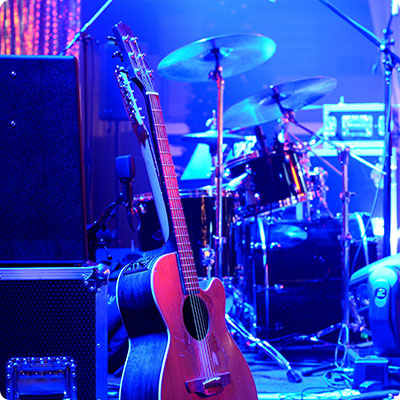
Animism, a deeply rooted belief
The term animism refers to the belief in souls and spirits, while anthropologists today prefer the concepts of magic and the sacred. Whatever the case, these ethnically-diverse religions share common features, such as the belief in a god who is the creator of all things. Among the Bantus, he is called Nzambi, "whom no one has created, whom no one surpasses". He is inaccessible, so people turn to intermediary deities, genies or ancestors, to obtain healing, good graces and advice through gifts and sacrifices. To conduct the ceremonies, a diviner-healer is called in - the ngaa among the Batéké and the nganga among the Bakongo - who knows how to intercede with the ancestors and interpret messages from the beyond. One of the diviner's primary functions is to create objects, statuettes and talismans invested with magical powers to protect against Ndokis, fearsome sorcerers who can cause serious illness.
Christianity, the majority religion in Congo
Catholics and Protestants make up the majority of the Congolese population. While the Portuguese evangelized the Kongo kingdom in the 17th and 18th centuries, the Roman Catholic Church did not celebrate the centenary of the Christianization of the Congo until 1983, taking as its landmark the landing of Abbé Carrie at Luango on August 23, 1883, who immediately founded the first Catholic Mission. Abbé Augouard followed him two years later and set about evangelizing northern Congo. Since 1973, the Catholic hierarchy has been entirely Congolese. For Protestants, offshoots of the Free Churches of Sweden, such as the Evangelical Mission of Congo, have been established since the early 20th century. Other Scandinavian churches would follow throughout the century.
Messianic churches, the independent voice of the prophets
At the crossroads of religious movements, consciousness-raising and political action, two churches - Kimbanguism and Matswanism - played a powerful emancipatory role on both sides of the river, to the point of creating a sense of fear on the part of the colonial powers. These religious movements in the Congo Basin can be interpreted in different ways. One analysis points to the weak theological training of local catechists, enabling charismatic figures to develop independent beliefs while refusing to collaborate with colonial power. The other interpretation refers to the revolutionary nature of Christianity, unknown to Western churches. It would have been revived by African prophets who realized that the behavior of white people in Africa did not correspond to the discourse of Western missionaries. For some years now, evangelicalism has been characterized by an explosive mix of American televangelist-style shows, choirs and orchestras that are now part of the musical landscape in the two Congolese capitals, peopoly and media hype. Following the example of American televangelists, some captivating Congolese preachers have set up their own TV or radio channels, where they deal with various religious themes and broadcast liturgical songs in vernacular languages. One example is Congolese pastor Yvan Castanou, who delivers lively, dynamic teachings live on the Internet and through his program "Pour une vie d'impact", broadcast on several French-language radio and TV stations.
Kimbanguism, a prophetic religion
Founded by Simon Kimbangu, Kimbanguism is an independent African Christian church. Since 1987, its official name has been "The Church of Jesus Christ on Earth by His Special Envoy Simon Kimbangu". With some 32 million followers worldwide, this prophetic religion is practiced mainly in the Democratic Republic of Congo, Congo-Brazzaville and Angola, as well as by the African diaspora. For this religion, Jesus is a Black African, born on May 25, not December 25. Kimbanguism also contains numerous prohibitions: prohibition of alcoholic beverages, drugs, tobacco, adultery, the consumption of pork and monkeys, and dancing. Music is permitted, however, and the Kimbanguist Church boasts a renowned symphony orchestra. Born in Congo-Kinshasa in 1889, Simon Kimbangu received his religious education from missionaries before becoming a laborer in an oil mill and then a railway worker. On April 6, 1921, he announced that he had seen Jesus Christ, who had enabled him to successfully heal the sick. Soon considered a prophet, his fame spread throughout Central Africa. The colonial power wanted to break this emerging power, and the black prophet was sentenced to life imprisonment for witchcraft and political agitation. He died in prison after thirty years of captivity. From 1969 to 2001, the Kimbanguist Church belonged to the World Council of Churches, but withdrew following the self-proclamation of Simon Kimbangu's son as the "reincarnation of the Lord Jesus Christ". However, it has remained a member of the All Africa Conference of Churches since 1974.
Matswanism, a politico-religious movement
A political association founded in the Congo in the 1930s, Matswanism was born of the demand for independence from European colonizers, while advocating social and economic equality for the Congolese people. Its name comes from the great emancipatory and religious figure André Matswa, known as Grenard. Born in 1899, he was taught by the Spiritan Fathers, then enlisted in the French army as a sergeant in the tirailleurs. He then moved to Paris, where he worked as a public assistance accountant in the Seine department, and became involved in independence movements. Imprisoned several times for anti-colonialism, he was deported to Chad in 1930, escaped, but was recaptured during World War II. Incarcerated again, he died in Mayama prison in 1942. The fervent expectation of those close to him, who did not believe in his death, gave rise to genuine veneration and the religious movement that bears his name.













